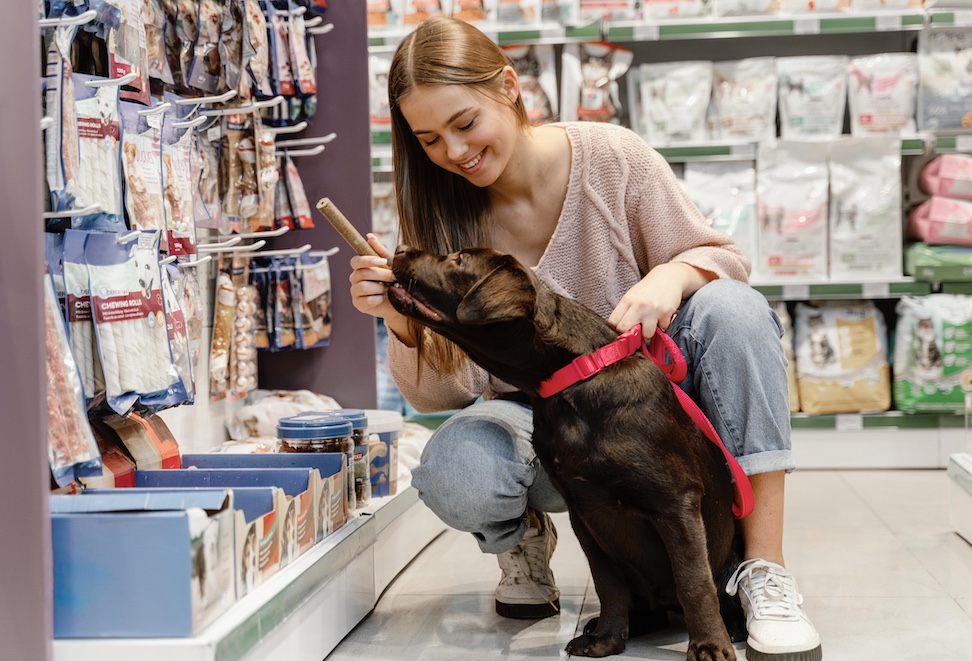The UK is a nation of pet lovers, with 59% of households owning at least one furry friend. The result is a thriving pet industry — the most recent statistics show that Brits spend almost £8 billion on them every year. This includes expenditure on everything from food and supplies like medicine, to pet care products and services such as grooming and training.
In addition to helping our beloved pets survive and thrive, those who go into this sector stand to make some big bucks. Considering more than a third of the £8 billion spent on pets each year by Brits is on pet food, owning a pet shop could well be the most profitable way of breaking into this industry. However, launching one is easier said than done, with many different aspects to consider. Fortunately for you, we’ve broken down the main steps to help make your entrepreneurship journey that bit smoother.
Find your niche
Market research is key
Independent pet shops face huge competition from chains and supermarkets, so it’s imperative that you carve out a niche to help you stand out. The first step to achieving this is conducting market research. Such research can be done in many ways, from simply visiting stores to conducting surveys. This will help you find out things like what other pet shops in the area are selling (and what they aren’t), their prices, why people opt to shop there and what the public want from a pet shop.
All of this information can be used to work out where the gaps in the market are and how you can improve on what your competitors are doing. For example, you might find there are certain in-demand products that aren’t being widely sold by pet shops, or that people are struggling to find a particular kind of animal or reptile when looking for a new pet.
A novel niche may be the way forward
If you’re still uncertain about how to stand out from the crowd, consider novel offerings alongside standard pet shop products. For instance, you might want to run zoo-style ‘meet the animals’ sessions, classes teaching people how to care for certain pets, or pet grooming services.
Consider the costs
After deciding the kind of pet shop you want to run, you now need to think about the costs involved. You must secure enough funding to cover the following expenditures:
Rent
Your rent will be one of your biggest expenses each month. The more sought-after the location, the more you’ll have to pay — for example, high street retail costs in London’s West End are almost ten times the amount of those in Manchester.
Employee and fit-out costs
Employee costs are another significant monthly expense, though how much you’ll pay depends on things like how many staff you hire, the roles they do and where in the country you’re based. That said, the average pet store worker in the UK earns £25,515. You’ll also need to ensure your pet store is fitted out with everything needed to operate, plus the decorative elements.
Insurance
Shop insurance is yet another expense to bear in mind, with the cost depending on things like how much cover you need, where you’re based and how many people you hire. As noted by Brisco Business Insurance: “Owning or renting out a commercial property comes with a unique set of risks that may not necessarily be covered in a standard insurance policy. This is where shop insurance comes in handy.” The risks include everything from fires to customer injuries.
Marketing
Marketing is essential if you want to attract customers and build the reputation of your pet shop. Again, the costs of this can vary hugely, largely depending on your marketing methods. Some, like social media marketing, are cheaper than others, but much more time-consuming.
Sort out the legalities
Business structure
To be able to legally operate your pet shop, you must pick an appropriate structure. This will affect aspects like the taxes you pay and how you can borrow money. We recommend checking out this guide to business legal structures to help you decide which one makes most sense for you.
Licences and regulations
Pet shop owners must meet particular laws and have certain licences. This includes pet-related legislation like The Pet Animals Act 1951 should you sell any pets, as well as retail-specific laws such as clearly displaying the price of goods.
Intellectual property laws
Finally, it’s crucial that your pet store’s name and concept doesn’t infringe on that of competitors. You can check this using the Intellectual Property Office’s website by searching for existing trademarks and copyright.










